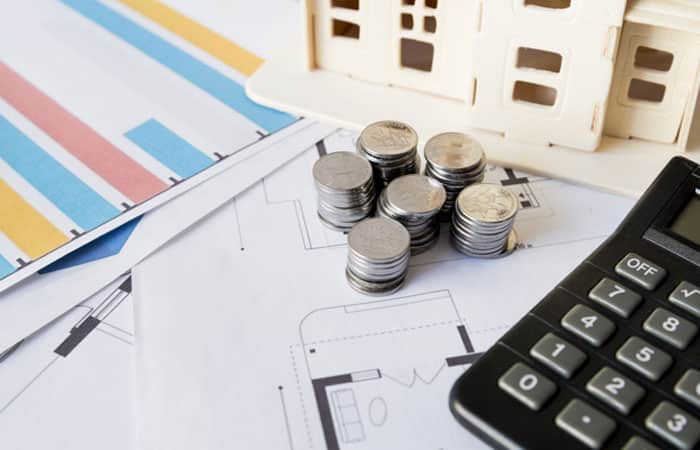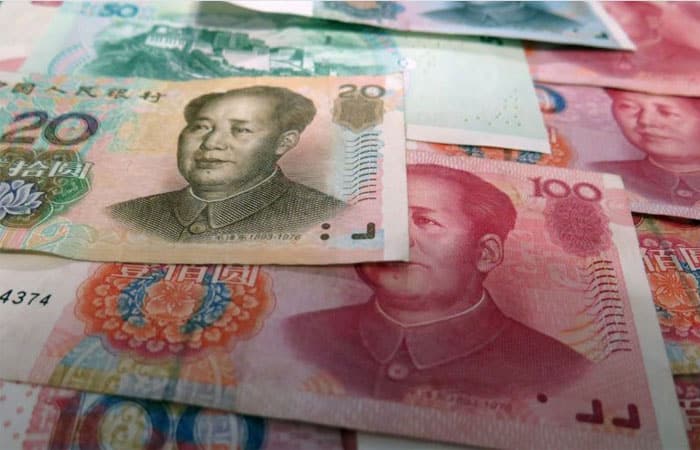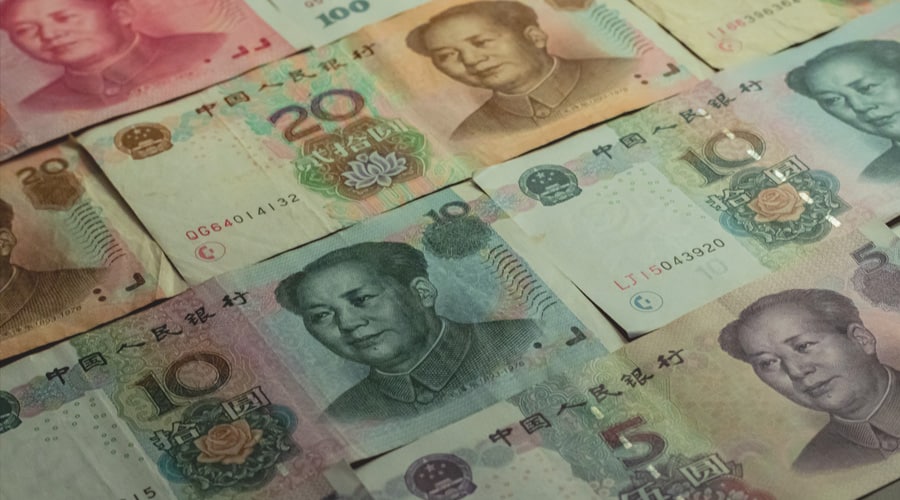Chinese currency is the Renminbi, which literally means “people’s currency” and is represented by the sign “¥” with the international code “CNY” (often referred to as “RMB”). The Renminbi is the official currency of the People’s Republic of China, and its basic unit is the Yuan. Just like the difference between “Sterling” and “Pound” in the UK, Renminbi and Yuan reflect distinct aspects of China’s monetary system. For more insights into China as a travel destination, check out our guide on China travel tips.
Renminbi Banknotes: Denominations and Historical Update
One Yuan is subdivided into 10 Jiao, and one Jiao is further divided into 10 Fen. Issued by the People’s Bank of China—the country’s central bank—the Renminbi banknotes come in several denominations: ¥0.1 (1 Jiao), ¥0.5 (5 Jiao), ¥1, ¥5, ¥10, ¥20, ¥50, and ¥100. While most banknotes have been in circulation since 1955, the denominations of ¥20, ¥50, and ¥100 were introduced later in 1999 to adapt to modern financial needs.
Renminbi Coins
Aside from paper currency, China mints coins offered in denominations ranging from 1 Fen to 1 Yuan (¥0.01–1). With inflation and rising prices, coins below ¥0.1 have seen reduced usage. Although larger coins exist—like the commemorative ¥5 coin—they are usually reserved for special occasions and are not used often in everyday transactions.

Design and Features of Chinese Banknotes
Each banknote prominently displays the denomination in both Arabic numerals and Chinese financial numeral characters. Additionally, inscriptions such as “People’s Bank of China” appear in several languages—including Zhuang, Mongolian, Tibetan, and Uyghur—reflecting the nation’s ethnic diversity. Since the fourth series of banknotes was introduced, you’ll also notice a section of Chinese Braille on the right front side, making these notes accessible to the visually impaired.
Even though the currency includes smaller units like Jiao and Fen, the rapid increase in prices has made it uncommon to deal in decimals. Consequently, retailers commonly round prices to whole Yuan amounts (e.g., ¥9 or ¥10), simplifying daily transactions.
Payment Methods in China
Major credit and debit card brands—such as Visa, MasterCard, American Express, and JCB—are accepted in upscale department stores and top-rated hotels, primarily in major metropolises like Shanghai and Beijing. However, in smaller cities and rural areas, these cards are rarely accepted. For everyday transactions, such as street food and small local shops, it’s essential to carry cash.
UnionPay in China
China’s own UnionPay system is widely accepted, particularly at five-star hotels and luxury outlets. While it might be tempting to rely on your foreign credit cards, keep in mind that they are not as universally accepted. Always plan ahead by exchanging a sufficient amount of cash to cover everyday expenses.
Remember: In smaller cities or the countryside, having cash on hand is crucial for payments across the board—be it for dining, transportation, or shopping. Preparing your finances in advance is one of the key pre-trip planning activities.
Currency Exchange Options and Requirements
Foreign currencies such as USD, EUR, and GBP are not accepted in China. To gain access to local monetary transactions, you must exchange your money into RMB. You can easily do this at:
- Airports
- Branches of major Chinese banks
- Large hotel foreign exchange services
While many five-star hotels offer foreign exchange services, their rates are often not as competitive as those provided by banks. Always compare rates before making a transaction.
Documents Required for Currency Exchange
When exchanging foreign currency for RMB at a bank, a valid passport is essential as an identification document. You may also be required to complete a brief form about the purpose of your exchange. It’s best to answer simply and honestly—most banks only follow up if your answers raise any concerns.
ATM Withdrawals with Visa and MasterCard
Thankfully, an increasing number of banks in China now allow cash withdrawals via international cards like Visa and MasterCard. Although these services are improving, it’s still advisable to be informed about the best ATMs and banks for cash withdrawals to avoid unnecessary fees or difficulties.
Changing the Yuan for Other Currencies
The Yuan is gradually becoming more accepted internationally, though limitations still exist. For instance, if you need to convert large sums, Hong Kong remains the best option due to its flexible financial systems. Remember, Chinese customs limit the amount you can carry out of the country to 20,000 Yuan—so plan accordingly. Avoid any unofficial currency traders outside banks, as such transactions are illegal and risky.

Identifying Fake Currency
Distinctive Noise
Legitimate banknotes produce a distinct, crisp sound when handled. Counterfeit notes, on the other hand, tend to make a muffled sound.
Visual Cues
Chinese banknotes have distinctive design elements. For example, the ¥5, ¥10, and ¥20 notes display unique floral patterns, while the ¥50 and ¥100 notes feature an image of Chairman Mao. When held up to light, genuine banknotes reveal a clear image, whereas counterfeit notes show a blurred impression.
Tactile Details: The Chairman Mao Image
On the right side of each banknote, you’ll find an embossed image of Chairman Mao. Running your finger gently along the collar should reveal a slightly rough texture—if it feels unnaturally smooth, it might be fake.
Security Features
Genuine banknotes incorporate an interwoven security line. In counterfeit notes, this feature is usually absent or poorly replicated. Look out for any mismatches or irregular gaps in the banknote’s design to be on the safe side.
How to Avoid Receiving Fake Chinese Currency
Although the government imposes strict penalties on currency forgery, there’s still a small risk when handling cash. To minimize this risk, consider the following guidelines:
Avoid Black Market Transactions
While you may encounter locals offering currency exchange on the street, it’s safest to rely on official bank services rather than black market deals.
Use Official Bank ATMs
Although third-party ATMs might seem convenient, using ATMs at banks can further reduce your risk when withdrawing cash.
Avoid Using Higher-Denomination Banknotes in Small Transactions
In everyday transactions, using 100 RMB banknotes can be inconvenient and risky since receiving counterfeit change is more common. Opt for smaller denominations where possible.
Important Travel Notes
- Avoid carrying higher-denomination banknotes, as these are the most frequently counterfeited.
- Be discreet with your cash, especially in crowded areas such as public transport hubs, tourist spots, and busy streets.
- Stay updated on China’s evolving financial regulations concerning foreign currencies.
- Always verify exchanged money before completing larger transactions.
- If in doubt, do not hesitate to ask the bank or hotel staff for assistance.
- Bargaining is common at tourist sites, restaurants, and local markets, so be prepared to negotiate.
Keep in mind that banks may only accept undamaged banknotes; even a small tear can lead to rejection. Although travelers’ checks offer an alternative, they are typically less convenient than cash. For smooth transactions—especially in rural areas—it’s best to have small, usable cash on hand.
Have you experienced any difficulties with using the Renminbi in China? We invite you to share your stories or ask any questions in the comments. Our team—including local experts familiar with destinations like China—is always ready to help with any queries about financial transactions while traveling.
Before departure, double-check that every exchanged banknote is intact, as banks strictly adhere to this policy. If you plan an extended stay or plan to explore remote areas, consider having a sufficient mix of smaller denominations in cash. Ultimately, being well-prepared ensures a smooth and enjoyable trip, whether you are navigating busy cities like China’s urban centers or more off-the-beaten-path destinations.
Travel smart, stay cautious, and immerse yourself in the vibrant experiences that China offers.































